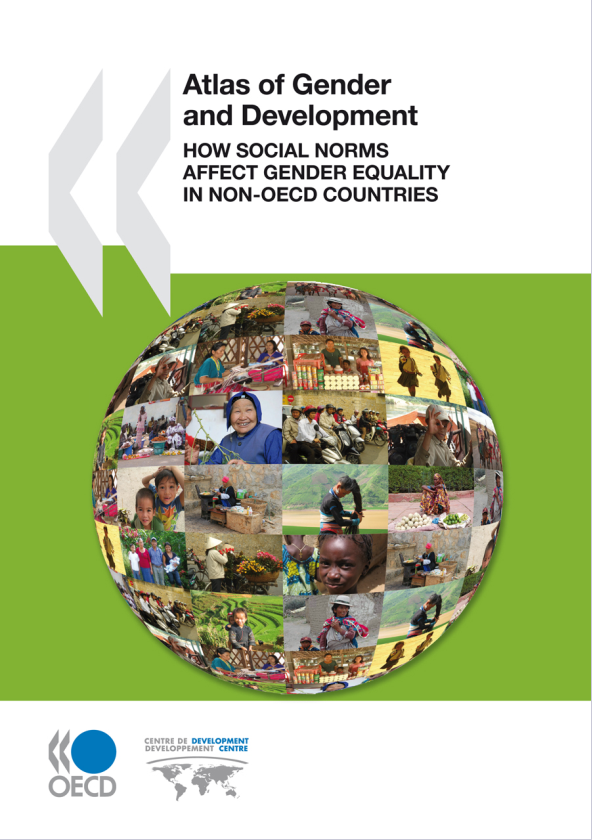Atlas of Gender and Development
Did you know?
…that countries with higher levels of discrimination against women also have fewer women in the labour force?
…that the three highest-ranking countries in SIGI are Paraguay, Croatia and Kazakhstan?
…that looking at the incidence of early marriage can help explain differences in literacy rates across coun-tries?
Social Institutions : Hidden forms of gender discrimiantion
Gender inequality holds back not just women but the economic and social development of entire societies. That is why overcoming discrimination is important in the fight against poverty in developing countries. However, tackling such inequalities is not easy.
In many countries, discrimination against women is deeply rooted in social institutions, long-lasting codes of conduct, norms, traditions, and informal and formal laws determine gender outcomes in education, health, political representation and labour markets.
The Atlas of Gender and Development : Mapping Social Institutions

The OECD Atlas of Gender and Development provides an innovative way of looking at these sources of discrimination.
It presents a new composite measure of gender inequality: the Social Institutions and Gender Index (SIGI), developed by the OECD Development Centre, which examines women’s status in five key areas:
• Family code – early marriage, parental
authority, polygamy and inheritance rights.
• Physical integrity – violence against women and female genital mutilation.
• Son preference – ’missing women’.
• Civil liberties – women’s freedom of movement and dress.
• Ownership rights – women’s access to land, property and credit.
An indispensable tool
The Atlas of Gender and Development is an indispensable tool for development practitioners, policy makers, academics and the wider public.
It provides detailed country notes,maps andgraphicsdescribing the situation of women in 124 developing and transition countries based on an analysis of how social institutions discriminate against women according to the five key areas. It also provides SIGI rankings for 102 of these countries.


